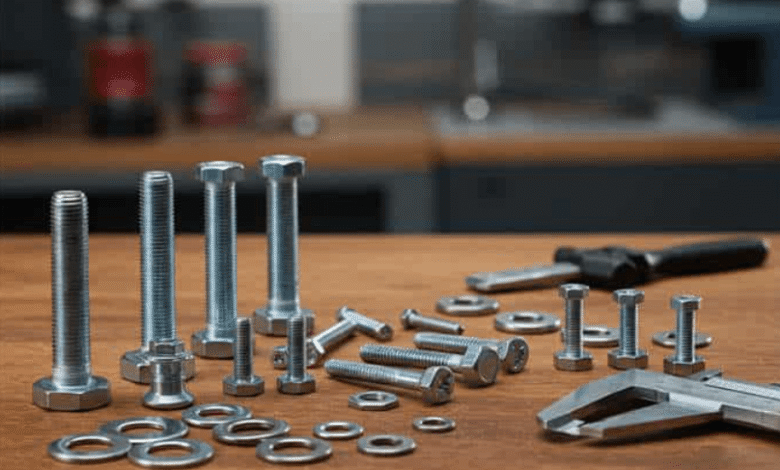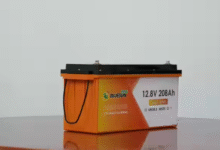The Importance of Custom Nuts and Bolts in Modern Manufacturing and Construction

In the vast world of manufacturing, engineering, and construction, fastening components such as nuts and bolts play a pivotal role. They hold everything together, from the smallest electronic devices to massive infrastructure projects. While standard nuts and bolts serve many purposes, the increasing complexity and specialized demands of various industries have made custom nuts and bolts essential to meet unique specifications, enhance performance, and ensure safety.
This article explores why custom nuts and bolts matter, their manufacturing process, benefits, industries that rely on them, and how to select the right supplier.
What Are Custom Nuts and Bolts?
Custom nuts and bolts are fastening components manufactured according to specific design, material, size, and functional requirements rather than generic, off-the-shelf options. These components are tailored to address unique challenges in assemblies, such as:
- Non-standard thread sizes or pitches
- Special mechanical properties (strength, hardness, elasticity)
- Unique shapes or dimensions to fit restricted spaces
- Corrosion resistance for harsh environments
- Enhanced locking mechanisms for vibration-prone assemblies
They are often the solution when standard fasteners fail to meet application demands, ensuring reliability and durability.
See also: Technology in Commercial Cleaning: Innovations Shaping the Industry
Why Choose Custom Nuts and Bolts?
1. Precise Fit and Functionality
Custom nuts and bolts provide a perfect fit, reducing assembly errors, preventing loosening, and increasing overall stability. Tailored dimensions and thread profiles allow seamless integration into specialized equipment.
2. Superior Material Selection
Custom manufacturing enables the use of specialized materials—such as stainless steel, titanium, alloy steel, or brass—optimized for strength, corrosion resistance, or weight considerations.
3. Enhanced Mechanical Performance
Designing fasteners with specific tensile strength, torque limits, or fatigue resistance ensures they withstand operational stresses without failure.
4. Adaptability to Harsh Environments
Custom coatings and treatments—like zinc plating, galvanizing, or anodizing—protect fasteners from rust, chemicals, UV exposure, and extreme temperatures.
5. Compliance with Industry Standards
custom nuts and bolts can be manufactured to comply with industry-specific regulations, ensuring safety and quality certifications.
The Manufacturing Process of Custom Nuts and Bolts
Requirement Analysis and Design
The first step involves close collaboration between clients and engineers to understand application needs, load requirements, environmental conditions, and regulatory standards. CAD models and technical drawings are developed to finalize designs.
Material Procurement
Materials are sourced based on design needs, balancing cost and performance. Common materials include carbon steel, stainless steel, alloy steel, brass, and sometimes exotic alloys.
Forming and Machining
Depending on the design and volume, fasteners may be produced via:
- Cold Forging: Ideal for high-volume manufacturing with consistent quality and strength.
- Hot Forging: Used for larger components requiring enhanced mechanical properties.
- CNC Machining: Suitable for intricate or low-volume custom parts demanding precision.
Thread Creation
Threads are created by rolling or cutting to ensure tight tolerance and compatibility with mating parts.
Heat Treatment
This process improves mechanical properties such as hardness, strength, and wear resistance.
Surface Treatment
Surface finishing techniques like plating, coating, or passivation provide corrosion resistance and aesthetic appeal.
Quality Inspection
Dimensional checks, thread gauge tests, tensile strength measurements, and surface quality inspections ensure products meet specifications.
Packaging and Logistics
Proper packaging protects fasteners during shipment and storage while facilitating inventory management.
Industries Benefiting from Custom Nuts and Bolts
Automotive
Custom fasteners are critical for engine assemblies, chassis, suspension systems, and safety components requiring high strength and precision.
Aerospace
Fasteners here must meet stringent weight, strength, and corrosion resistance standards while withstanding extreme temperatures and vibrations.
Electronics
Tiny, precise custom nuts and bolts secure delicate electronic components in compact devices.
Construction and Heavy Equipment
Durable and corrosion-resistant fasteners support large structures exposed to environmental stressors.
Medical Devices
Biocompatible custom fasteners are essential for surgical instruments, implants, and diagnostic equipment.
Choosing the Right Custom Nuts and Bolts Supplier
Experience and Expertise
A supplier with deep industry knowledge can offer valuable insights, suggesting optimal materials and designs.
Manufacturing Capabilities
Check if the supplier has advanced equipment for forging, machining, threading, and finishing, capable of handling your order volume.
Quality Certifications
Look for ISO 9001, ASTM, AS9100, or other relevant certifications ensuring adherence to international standards.
Customization Flexibility
The supplier should be open to collaborating on design iterations, prototyping, and sample testing.
Delivery Reliability
Timely shipments and flexible order quantities prevent production delays.
Customer Support
Responsive communication and technical assistance are vital throughout the procurement process.
Advantages of Using Custom Nuts and Bolts
- Enhanced Reliability: Tailored fasteners reduce the risk of mechanical failure.
- Cost Savings: Optimized designs and materials prevent overengineering and reduce maintenance.
- Improved Safety: Compliance with standards and precise engineering support safer products.
- Simplified Assembly: Custom features reduce the number of components and assembly time.
- Sustainability: Selection of recyclable materials and coatings can lower environmental impact.
Real-Life Example: Custom Nuts and Bolts in Renewable Energy
A solar panel manufacturer needed fasteners capable of withstanding extreme weather and salt corrosion in coastal installations. Collaborating with a custom nuts and bolts supplier, they developed:
- Stainless steel bolts and nuts with special anti-corrosion coatings
- Custom thread profiles for easy installation without compromising strength
- Locking nuts to prevent loosening under vibration
This partnership enhanced product durability and reduced maintenance, ensuring long-term operational efficiency.
Trends in Custom Nuts and Bolts Manufacturing
Industry 4.0 and Automation
Smart factories use IoT and AI to optimize production, improve quality, and reduce waste.
Advanced Materials
Incorporating composites, titanium alloys, and nano-coatings for superior performance.
Additive Manufacturing
3D printing accelerates prototyping and enables complex fastener geometries.
Sustainability Focus
Eco-friendly materials and processes help manufacturers meet environmental regulations.
Conclusion
In an era where precision and performance define success, custom nuts and bolts have become indispensable across industries. Their tailored designs, materials, and finishes address unique challenges that standard fasteners cannot meet. Partnering with an experienced supplier ensures access to high-quality, reliable fastening solutions that boost product safety, durability, and efficiency.
Investing in custom nuts and bolts can significantly impact your operational success, reducing downtime, maintenance costs, and enhancing your competitive edge.





